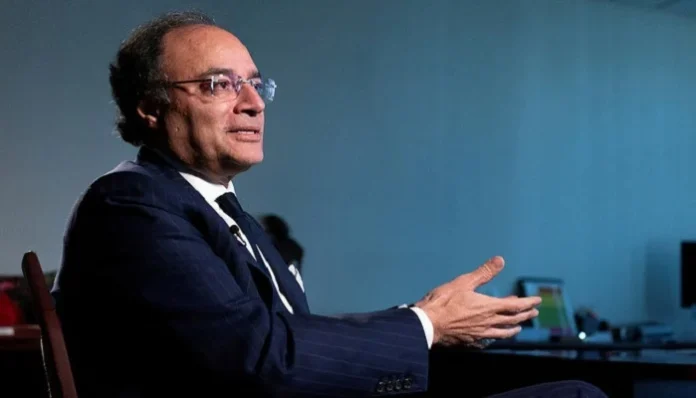Finance Minister Senator Muhammad Aurangzeb reiterated on Saturday that all traders would be brought under the tax net without exception, as the government faces an ambitious revenue target of Rs13 trillion projected in the FY25 budget.
The rise in the tax target is made up of a 48% increase in direct taxes and a 35% hike in indirect taxes over revised estimates of the last fiscal year. Non-tax revenue, including petroleum levies, is seen increasing by 64%.
“We will definitely address the problems that the budget for the next fiscal year has brought for traders,” Aurangzeb said, addressing business leaders at the regional office of the Federation of Pakistan Chambers of Commerce and Industry (FPCCI) in Lahore.
Stressing that the budget should be viewed from a broader perspective, the finance minister said the economy was moving towards macroeconomic stability.
The government presented the national budget on June 12 with a challenging tax revenue target of Rs13 trillion for the year starting July 1, up about 40% from the current year, to bolster the case for a new bailout agreement with the International Monetary Fund (IMF).
Amid calls to prevent further electricity price hikes, the finance minister emphasised the imperative to put the distribution companies (Discos) in order; otherwise, the power tariff would continue to increase as it has been lately.
Underscoring the significance of investment both from inside and outside the country, Aurangzeb highlighted the need for economic stability through comprehensive budgetary perspectives. “Foreign investors are as important for Pakistan as the local ones,” the finance minister added.
Advocating for broad reforms to guide the economy out of its current challenges, he called for the closure of redundant federal government departments. “We need to shut down the ministries that have been devolved to the provinces,” he said.
On the term “non-filer,” the finance czar said he simply did not understand this coinage. “This [Pakistan] is the only country where the term non-filer exists.”
Touching upon economic policy, Aurangzeb expressed his view on gradually reducing the policy rate to stimulate economic growth. “We should increase the tax-to-GDP ratio to 30% over the next three years,” he said adding,” In my opinion the policy rate should be reduced gradually.”
Calling attention to the “economic milestones” the Pakistan Muslim League-Nawaz (PML-N) government recently achieved, Aurangzeb mentioned that foreign exchange reserves had exceeded $9 billion.
Necessitating plugging the rampant leaks in the system, Aurangzeb admitted that the public outcry against the hefty allowances enjoyed by bureaucrats and rulers was justified.
“The criticism that the government is not reducing the perks and privileges of the high-ups is justified,” he said.
In his concluding remarks, Aurangzeb underscored the importance of advancing small and medium-sized enterprises (SMEs) and the IT sector to foster economic growth and stability in the country.


